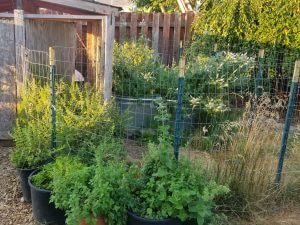Have you ever wondered about environmental toxins and their effects on your body? Have you ever experienced headaches or dizziness after being exposed to toxins like paint or cleaning products? Having experienced the 2020 wildfires in Oregon, I can say environmental toxins are a public health concern and the struggle is indeed real. Not only did air quality levels plummet to the most hazardous in the world, I saw the effects in myself and everyone around me including coughing and headaches, as well as general achiness, low grade fevers, irritability, and fatigue. These are all signs the body is working hard to get rid of toxins.

When dealing with hazardous air quality it is not just the smoke that is concerning, but also the by-products of everything that burned. Household materials like fabrics, wire, paint, carpet, house siding, roofing, plastics, electronics, appliances, and everything else in a home. Vehicle materials like rubber from tires, paint, wiring, and seat materials. Not to mention the remains of many animals lost. When breathing these burned particles in the air, it not only compromises the health of airways in the body, but also all body systems. Through gaseous exchange between the lungs and bloodstream, toxins enter the body and can cause a variety of problems. They are a hit to the immune system and liver, adding to toxins the body may already be storing or working to eliminate each day.
Unfortunately, toxins are difficult to avoid, even without wildfires releasing particles into the air. Due to our modern chemical industry, they are everywhere. There are ways you can help yourself and your family, including:
- Avoiding toxins as much as possible by using natural products like detergents, cleaners, and body products.
- Proper air filtration in your home with the added protection of an air purifier.
- Taking your shoes off before entering your home.
- Eliminating carpet in your home – expensive, I know!
- Eating clean. This means eating more whole foods like fruits, vegetables, lean protein, and healthy fat – taking care to purchase organic when you can. It also means eating less processed foods that are loaded with chemicals that add to your body’s toxic burden. Processed foods not only contain high levels of sugar, salt, and fat, but also chemicals that add color and flavor, none of which help your body clear toxins.

If you have been exposed to a high level of toxins due to environmental conditions, it might be a good time to complete a nutritional cleanse. Commonly practiced in Traditional Chinese Medicine and Ayurvedic Medicine, a cleanse can help rid your body of toxins that cause a variety of health conditions and are linked to cancers, infertility1, allergies, asthma2, to name a few. There are a variety of dietary cleanses available, however it can be confusing trying to figure out if you are using the right kinds of foods to help detoxify your body. If you are experiencing any of the common health complaints from recent toxin exposure, check out my 21-Day Detox Formula online course to guide you every step of the way. It is a tried and true program that can not only help you clear out those toxins more effectively, but also get you back on track to a cleaner way of eating for your health and wellness. Because I am currently experiencing the effects of poor air quality and know first-hand how I can help my body clear toxins, I want to offer you $50 off by using code “detox50” – good through November 15, 2020.
Get your copy of the course today
Be Well,
Tanya
P.S. If you want to learn more about environmental toxins, go to the Environmental Working Group page here -à https://www.ewg.org/
1.Sutton, Patrice et al. “Toxic environmental chemicals: the role of reproductive health professionals in preventing harmful exposures.” American journal of obstetrics and gynecology vol. 207,3 (2012): 164-73. doi:10.1016/j.ajog.2012.01.034
2.Yang, San-Nan et al. “The effects of environmental toxins on allergic inflammation.” Allergy, asthma & immunology research vol. 6,6 (2014): 478-84. doi:10.4168/aair.2014.6.6.478